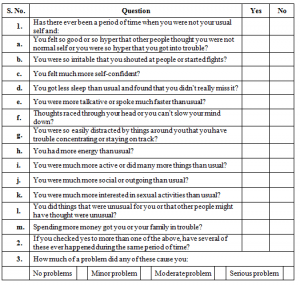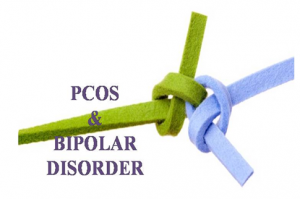Polycystic ovary syndrome (PCOS) is one of the commonest endocrine disorders in women of reproductive age. For the diagnosis of this syndrome the Rotterdam Criteria is used. According to this criterion, Polycystic Ovary Syndrome is diagnosed in the presence of at least two of three criteria:
- Menstrual disorders or amenorrhoea with chronic lack of ovulation
- Clinical and/or biochemical features of hyperandrogenism
- The presence of polycystic ovaries in ultrasonography after the exclusion of other endocrine disorders
Prevalence: In the United States, polycystic ovary syndrome (PCOS) is one of the most common endocrine disorders of reproductive-age women, with a prevalence of 4-12%. Up to 10% women are diagnosed with PCOS. In some European studies, the prevalence of PCOS has been reported to be 6.5-8%.
PCOS is a disease, which is associated with many complications such as obesity, diabetes, thyroid, dyslipidemia, cardiovascular disease, etc. Bipolar disorder is one of the diseases associated with PCOS. It is not clear whether PCOS generates bipolar disorder or vice-versa but its occurrence is common in PCOS-affecting females.
This disease is characterized by the occurrence of the periods of mania and depression. They are divided into:
- Bipolar disorder I (full-blown mania and major depression),
- Bipolar disorder II (hypomania and episodes of major depression)
- Unspecified bipolar disorder (bipolar symptoms that do not meet criteria I or II)
Prevalence: During an epidemiological study, it was found the prevalence of bipolar disorder is very less. 1% of the population is found to be prevalent with bipolar disorder I, 1.1% with bipolar disorder II & 2.4% with bipolar disorder III. The overall prevalence of the bipolar disorder is 4.4% in US population. Bipolar disorder II has the highest persistence (73.2%), with Bipolar disorder I (63.3%) following second and bipolar sub-threshold third (59.5%).
Relation between PCOS & bipolar disorder
PCOS & bipolar disorder are reported to be linked to each other. It has been found from the clinical studies that women with bipolar disorder are at higher risk of PCOS and vice-versa. In a clinical study on 110 women with PCOS, it was reported that 88 women were suffering from bipolar disease also.
 Both PCOS and bipolar disorder show increased levels of stress and high cortisol. This could be due to a dysfunction in the hypothalamic-pituitary-adrenal (HPA) axis. The HPA axis is responsible for stress response. Cortisol is released to handle stress. Then the body is supposed to calm itself down when the stressor no longer exists. When there is a problem with this cycle, like there is in bipolar disorder and PCOS, the cortisol sticks around. High cortisol levels can lead to many cognitive problems and depressive symptoms. The hormone imbalance could also lead to hyperandrogenism in PCOS.
Both PCOS and bipolar disorder show increased levels of stress and high cortisol. This could be due to a dysfunction in the hypothalamic-pituitary-adrenal (HPA) axis. The HPA axis is responsible for stress response. Cortisol is released to handle stress. Then the body is supposed to calm itself down when the stressor no longer exists. When there is a problem with this cycle, like there is in bipolar disorder and PCOS, the cortisol sticks around. High cortisol levels can lead to many cognitive problems and depressive symptoms. The hormone imbalance could also lead to hyperandrogenism in PCOS.
Multiple studies have shown a link between PCOS and the drug valproic acid/valproate, which is an anticonvulsant, used to treat bipolar disorder as a mood stabilizer & epilepsy. One study showed that 43% of the women receiving valproate for epilepsy had polycystic ovaries. In bipolar disorder, one study found that 47% of patients taking valproate had PCOS compared to the 13% of patients who were not.
Women with bipolar disorder are almost twice as likely to have irregular menstrual cycles, than healthy controls. While medications can cause irregularities, irregular periods often occur before a patient is even diagnosed with bipolar disorder.
BIPOLAR DISORDER QUESTIONNAIRE FOR WOMEN WITH PCOS
 The following given questionnaire is helpful to screen women with bipolar disorder:
The following given questionnaire is helpful to screen women with bipolar disorder:
Positive screening for bipolar disorder on the basis of following scores:
- YES to 7 or more than 13 points in Question 1
- YES to Question 2
- “MODERATE PROBLEM” or “SERIOUS PROBLEM” to Question 3
These symptoms can only be treated if regular therapy for PCOS is administered to the suffering females.
To know more, click on the link –
https://www.betterhelp.com/advice/stress/
REFERENCES
- http://emedicine.medscape.com/article/256806-overview#a5
- http://www.bipolarlab.com/index.php/index.php?option=com_content&view=article&id=55:15-prevalence-and-age-of-onset-bipolar-disorders-in-the-general-population&catid=21:bipolar&Itemid=77
- https://www.researchgate.net/publication/261034496_Bipolar_Disorder_in_Women_with_Polycystic_Ovarian_Syndrome_PCO
- https://www.ncbi.nlm.nih.gov/pubmed/24658986
- http://blogs.psychcentral.com/bipolar-laid-bare/2016/01/the-link-between-pcos-and-bipolar-disorder/
- https://www.ncbi.nlm.nih.gov/pubmed/15898962
- http://www.integration.samhsa.gov/images/res/MDQ.pdf
- https://furocyst.com/




